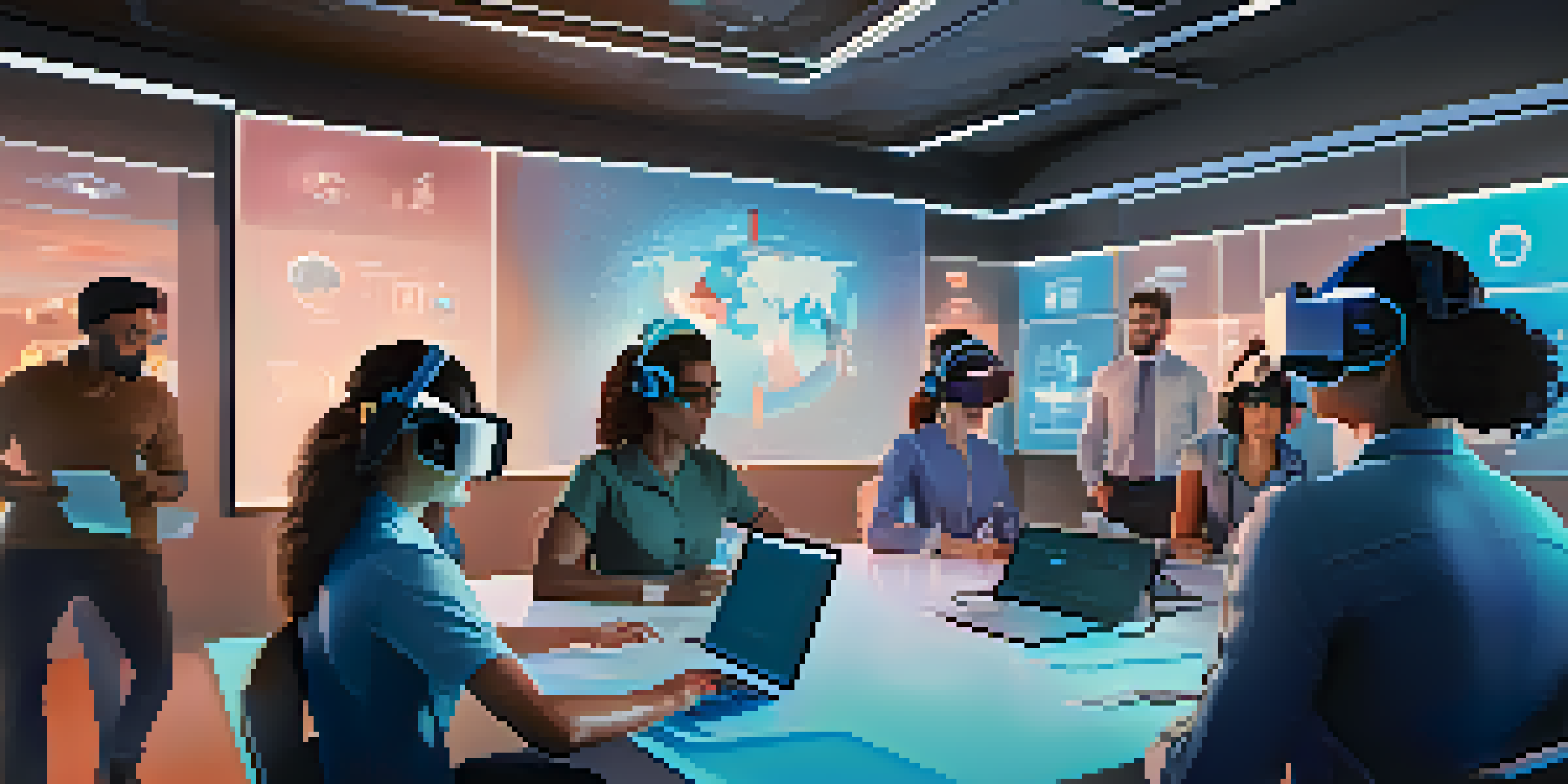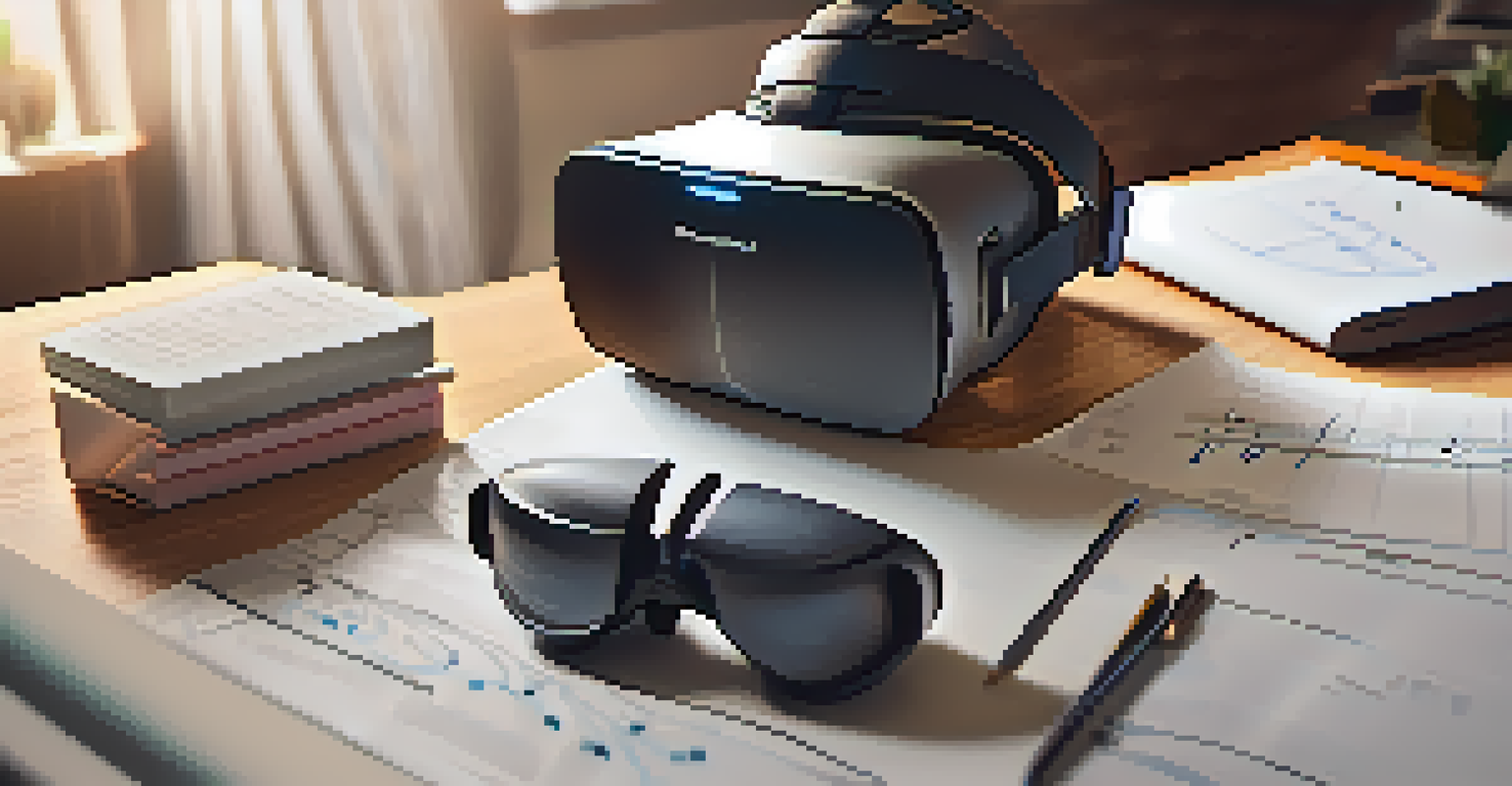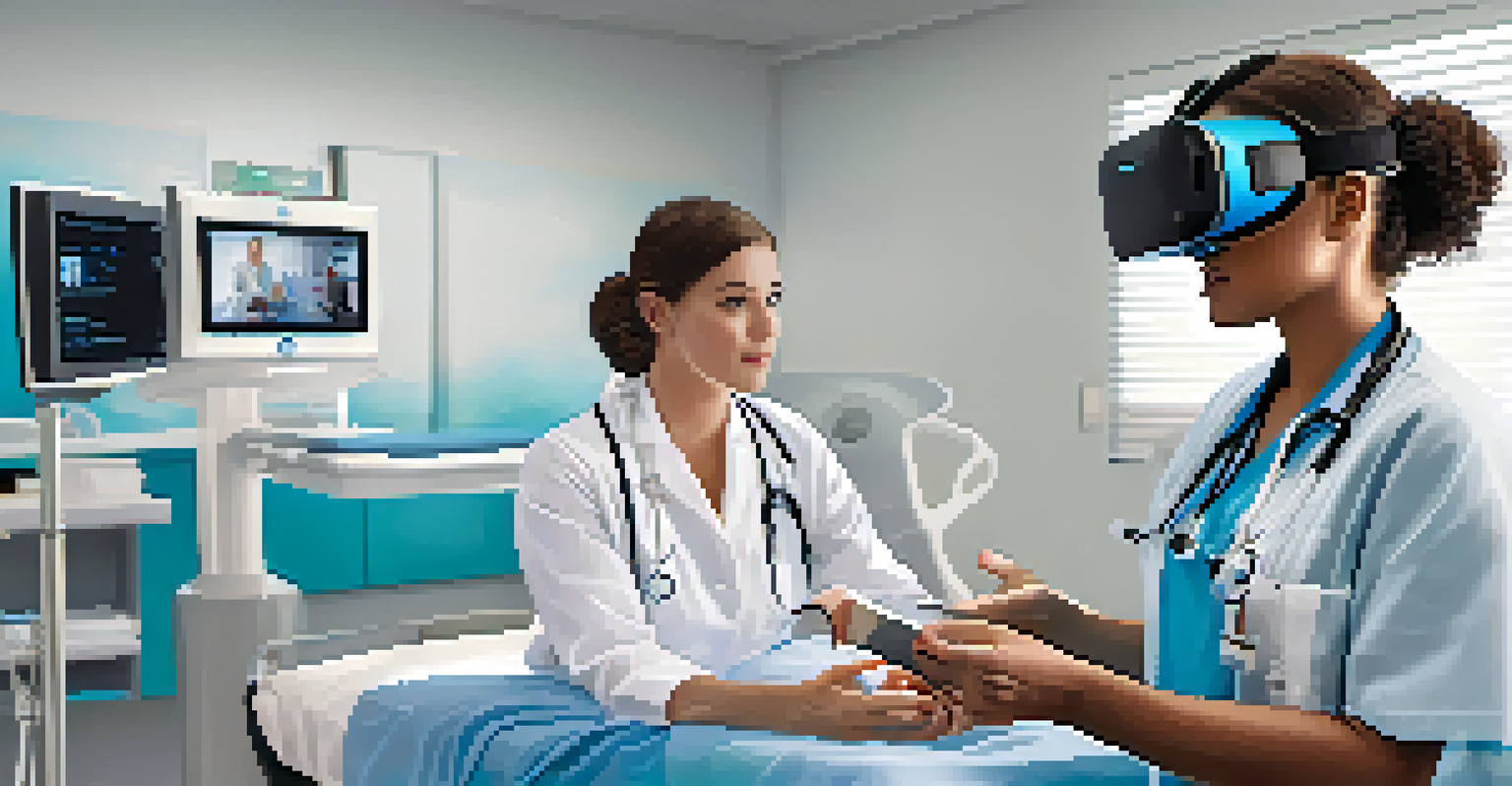Enhancing Soft Skills Training Using Virtual Reality Solutions

The Importance of Soft Skills in Today’s Workforce
In a world where technical skills often take center stage, soft skills are increasingly recognized as vital for success. They encompass abilities like communication, teamwork, and emotional intelligence, which are crucial for effective collaboration. Employers are actively seeking individuals who not only possess hard skills but can also navigate interpersonal dynamics with ease.
In today's workplace, the ability to communicate effectively and collaborate with others is just as important as technical skills.
Imagine walking into a meeting where everyone is communicating effectively, resolving conflicts smoothly, and innovating together. This is the power of soft skills in action, and it can significantly enhance productivity and workplace morale. As industries evolve, the demand for professionals who can adapt and connect with others is on the rise.
Thus, investing in soft skills training is not just beneficial; it's essential for both employees and organizations. By fostering these skills, companies can create a more cohesive, adaptable, and motivated workforce. This sets the stage for exploring innovative training methods that can elevate these crucial skills.
What is Virtual Reality (VR) Training?
Virtual Reality (VR) training immerses users in a simulated environment, allowing them to practice skills in a safe and controlled setting. Unlike traditional training methods, VR offers an engaging, experiential learning process that can significantly enhance retention and understanding. Picture donning a headset and stepping into a realistic office scenario where you can practice negotiations or conflict resolution.

This technology allows learners to encounter real-life situations without the fear of real-world consequences. For instance, a manager can navigate a challenging conversation with a team member, learning from their mistakes in a way that traditional methods simply cannot replicate. The immediacy of feedback in VR training creates a unique learning opportunity.
Soft Skills Are Essential Today
Employers increasingly seek candidates who excel in soft skills like communication and teamwork, alongside their technical abilities.
Moreover, VR training can be tailored to different industries and roles, making it versatile and applicable. Whether in customer service or leadership development, VR can simulate various scenarios, catering to the specific soft skills required. This innovative approach is revolutionizing how organizations train their employees.
Benefits of VR in Soft Skills Training
One of the standout benefits of VR training is its ability to create a highly engaging learning experience. Traditional training sessions often struggle to capture attention, while VR immerses participants in a dynamic environment that promotes active learning. This can lead to higher motivation and interest in developing soft skills.
The future belongs to those who learn more skills and combine them in creative ways.
Additionally, VR training allows for repeated practice in various scenarios, reinforcing learning through experience. Learners can engage in realistic role-plays, gaining confidence as they refine their responses and strategies. This repetition is crucial for mastering soft skills, as it helps build muscle memory in interpersonal interactions.
Furthermore, VR can facilitate remote training, breaking geographical barriers. Teams spread across different locations can participate in the same training session, fostering a unified learning experience. This accessibility ensures that all employees, regardless of their location, have the opportunity to enhance their soft skills effectively.
Real-World Applications of VR Soft Skills Training
Companies across various sectors are already harnessing the power of VR for soft skills training. For example, healthcare professionals can use VR to practice patient interactions, improving their communication and empathy skills. This not only enhances their abilities but also leads to better patient outcomes in real-life situations.
In the corporate world, organizations are using VR to train sales teams. They can simulate customer interactions, enabling employees to hone their persuasive techniques and handle objections effectively. This hands-on experience prepares them for real-world challenges, making them more adept at closing deals.
VR Training Revolutionizes Learning
Virtual Reality training immerses users in realistic scenarios, enhancing engagement and retention of crucial soft skills.
Moreover, educational institutions are integrating VR into their curricula to prepare students for the workforce. By offering students virtual experiences in teamwork and leadership, they are equipping them with the skills necessary for success in any career. This practical approach ensures that graduates are job-ready and confident in their abilities.
Challenges in Implementing VR Training Solutions
While the benefits of VR training are clear, there are challenges to consider. One significant hurdle is the cost of implementing VR technology, which can be a barrier for smaller organizations. Investing in high-quality VR equipment and software can require a substantial budget, making it essential for companies to weigh the return on investment.
Another challenge is ensuring that employees are comfortable with the technology. Some individuals may feel intimidated by VR or resistant to new methods of learning. Providing adequate training and support can help ease this transition, allowing everyone to benefit from the immersive experience.
Lastly, the effectiveness of VR training relies heavily on the quality of the content. Creating realistic and relevant scenarios that accurately represent workplace challenges is crucial. If the training lacks authenticity, it may not translate well to real-world situations, diminishing its value.
Measuring the Effectiveness of VR Training
To truly understand the impact of VR training on soft skills development, it’s essential to have a robust evaluation process. This can include pre-and post-training assessments to measure improvements in communication, teamwork, and other soft skills. By tracking progress, organizations can gauge the effectiveness of their VR training programs.
Feedback from participants is also invaluable. Gathering insights on their experiences can help refine training scenarios and identify areas for improvement. This iterative approach ensures that the VR training remains relevant and engaging, adapting to the evolving needs of the workforce.
Measuring VR Training Success
Evaluating VR training effectiveness through assessments and performance metrics helps organizations justify their investment.
Additionally, organizations can look at performance metrics such as employee retention, customer satisfaction, and team collaboration to assess the broader impact of VR training. By connecting soft skills development to tangible business outcomes, companies can better justify their investment in this innovative training method.
The Future of Soft Skills Training with VR
As technology continues to advance, the future of soft skills training with VR looks promising. We can expect to see even more immersive experiences that incorporate artificial intelligence, adapting scenarios in real-time based on participants' responses. This personalized approach will enhance learning outcomes and engagement.
Moreover, as remote work becomes more prevalent, VR training can bridge the gap between physical and virtual interactions. It can create opportunities for remote teams to build relationships, practice communication, and foster collaboration, all within a virtual space. This will be essential for maintaining team dynamics in a hybrid work environment.

Ultimately, the integration of VR in soft skills training is not just a trend; it's a shift towards a more effective and engaging learning process. By embracing this technology, organizations can prepare their workforce for the complexities of modern work, ensuring they thrive in an ever-changing landscape.